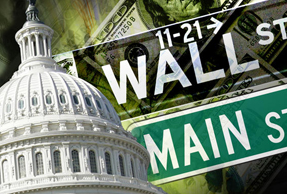In a lengthy ruling containing a detailed analysis of dueling economic expert reports, a federal court in Texas held on July 25, 2015 that defendant Halliburton Company demonstrated a lack of price impact at the class-certification stage on nearly all of the plaintiffs’ claims, thus rebutting the presumption of reliance. This action has twice been to the Supreme Court, most recently in Halliburton, Co. v. Erica P. John Fund, Inc., 134 S. Ct. 2398 (2014) (“Halliburton II”), which held that the fraud-on-the-market presumption of reliance may be rebutted by showing a lack of price impact from the alleged misrepresentation. The district court’s recent decision is significant because it is one of the first to consider the issue of price impact post-Halliburton II, and because the decision suggests that lower courts may be willing to wade deep into the complications of event studies and economic analysis in order to determine price impact at the class-certification stage.
Carrying the Halli-burden: District Court Takes Up Price Impact at Class Certification in the Wake of Halliburton v. Erica P. John Fund









